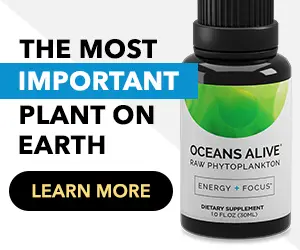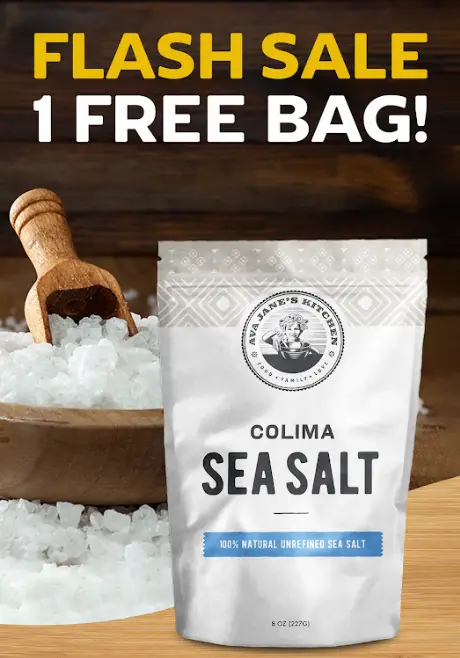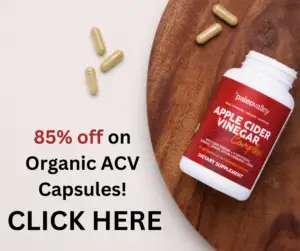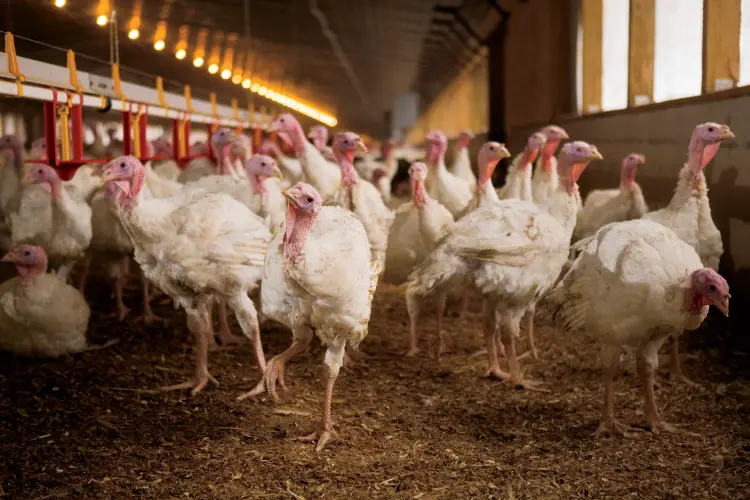
Turkey is the sixth most popular meat in the United States in terms of overall consumption, and it’s readily available year-round, not just on Thanksgiving.
Turkey ranks just ahead of lamb in terms of overall consumption, as nearly 13 pounds of turkey is consumed per person each year, placing turkey above lamb by a wide margin and a little less than four pounds of consumption behind fish and shellfish.
This relatively lean meat is almost universally recommended by dietitians, mainstream media articles, and nutritionists as a healthy source of protein.
What most people don’t realize is that turkey sold in today’s day and age is a far cry from what your grandparents ate, for several reasons.
Turkeys Do Not Eat Their Natural Diets on Farms
The natural diet of turkeys kept on farms for food purposes is a far cry from what they eat in the wild.
The natural diet of a turkey typically consists of “abundant amounts of mast,” a word meaning hard-shelled nuts and fruits.
They also consume leaves and grasses in the warmer months, as well as fruits, berries, seeds and insects in the fall.
On farms, it’s a different story.
According to the National Turkey Federation, most farm-raised turkeys are fed “a diet of corn and soybean meal mixed with a supplement of vitamins and minerals.”
This is not a turkey’s natural diet, and it also may contain something entirely foreign to both a turkey’s body and a human being’s body.
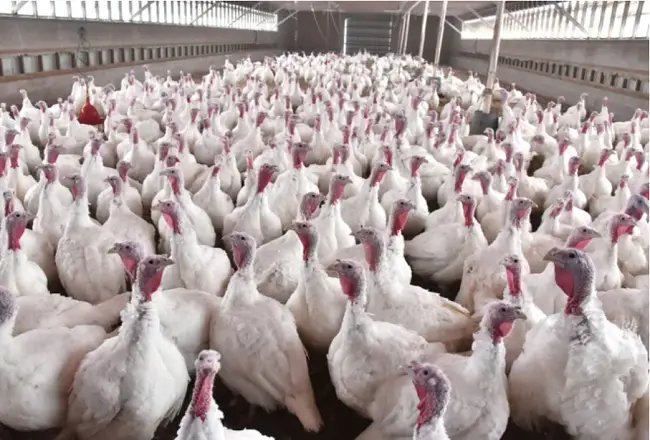
Photo via John L. Russell/Detroit News
This is problematic because an estimated 92% of corn is genetically modified (GMO), and 94% of soybeans are genetically modified.
Genetically modified foods are typically sprayed with large amounts of Roundup, the herbicide that genetically modified plants like corn and soy were engineered in laboratories to resist.
The active ingredient in Roundup, glyphosate, was dubbed a “probable human carcinogen” by the World Health Organization’s IARC in spring 2015.
Governments insist it is “safe,” but a database compiled recently by the non-profit GMO Free USA shows there are many health hazards to consuming GMO-laced foods.
If you eat turkey and it’s not from a farm where turkeys are raised on pasture and allowed to eat a natural, organic and non-GMO diet, you may be exposing yourself to foreign proteins found within the GMO feed, antibiotics, glyphosate and other toxic ingredients.
Pasture-Raised Turkey: The Healthiest Alternative
One of the best ways to avoid GMOs is to buy turkey from certified organic, pasture-raised and non-GMO producers.
The company Paleo Valley makes pasture-raised turkey sticks from birds raised in their natural environment.
“Our turkey sticks are made from turkeys who are allowed to live as nature intended…on organic grass pastures with plenty of sunshine, fresh air and room to exercise,” the company states on its website.
“The result of raising turkeys in such a natural way is a much healthier, clean protein with higher levels of vitamins, minerals, and Omega-3s.”
The company is offering its organic, pasture-raised turkey sticks at a special discount to AltHealthWorks.com readers
If you’d like to try these delicious turkey sticks, click here on this link.
These are the best-tasting meat sticks I have ever eaten, far superior to what you’ll find in supermarkets and gas stations and made with naturally-occurring probiotics and organic spices.
Click here to try get a discount on organic turkey sticks now
Thanks as always for reading and have a great day out there.
Sincerely,
Nick Meyer
AltHealthWorks.com Founder

P.S. Paleo Valley also makes organic, pasture-raised beef sticks that are available for the low price of $4.99 per pack.
I have been practically living off of these beef and turkey sticks for weeks, they are incredibly filling and come in seven different flavors total.
Click on the following link to try them: (shipping is free when you buy three packs or more)
Thanks for installing the Bottom of every post plugin by Corey Salzano. Contact me if you need custom WordPress plugins or website design.





